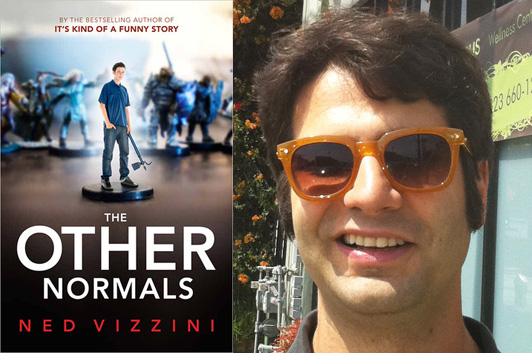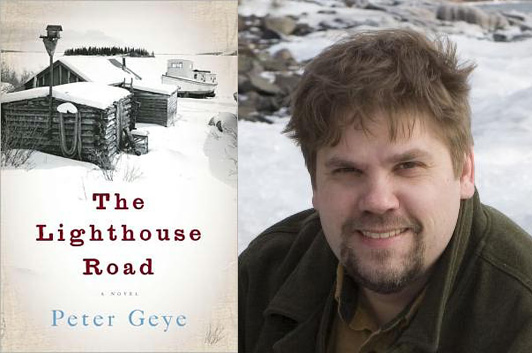Ned Vizzini on Discovering Role-Playing Games at 28

photo: Sabra Embury
Well, this guest essay takes me back; when I was in junior high school, I was into the idea of Dungeons & Dragons, but I didn’t know anybody else who was, so although I had a copy of the Monster Manual, all I ever did was read it (and maybe populate some fantasy story treatments with the inventoried beasties). Ned Vizzini knows what that feels like, and he’s drawn upon it in shaping the teenage protagonist of his new novel, The Other Normals. But this story goes in directions Ned’s life never did. (At least I don’t think it did…)
Ned will be at the New York Comic Con this weekend; he’ll be signing copies of The Other Normals on Saturday, October 13, just before takes part in a panel with screenwriter/director Chris Columbus where they’ll be talking about their new project, House of Secrets.
I always wanted to play Dungeons & Dragons when I was a teenager. Why?
- It seemed like an appropriate thing to do for a person who looked like I did then.
- I had a suspicion that the people who played would accept me for who I was.
- I loved the books!
Number three was most important. I really did love those D&D rulebooks. I had an uncanny ability to sit and read them and imagine what my characters would be like, and draw up charts and maps, and buy weapons for a big adventure… all without ever having another person to play with!
It makes sense now. The part of other teenagers’ minds that was turned on by the parsing of data (I’m thinking about baseball cards and comic books; two decades later, this escapist instinct is exemplified by the cataloging of vast media archives) was satisfied for me by these books. They all got food in their spines and eventually rotted apart.
But I never found anyone to play with.
12 October 2012 | guest authors |
Peter Geye Builds a Patio

Photo: Jeff Fifield
The Lighthouse Road, the second novel by Peter Geye, opens strong, with a woman making her way through a late 19th-century blizzard to give birth to her son, then jumps forward 20-some years for another vivid scene where that young man struggles to negotiate a skiff full of bootleg whiskey across a lake in the dead of night—and continues to cross back and forth as the story unfolds. I could give you a clever architecture metaphor for this, but the fact is, Geye’s already got one way better than anything I could come up with, and he shares it in this guest essay about a non-literary activity that turns in a moving description of an experience anyone who’s ever embarked on a big creative project will recognize.
There is, I assure you, more than one way to lay a patio.
This spring, after suffering through a home remodeling project that had consumed our lives for the better part of nine months, I decided to undertake the culminating job of laying the patio in the backyard myself. My wife didn’t like the idea. Not at all.
But I wanted a share of satisfaction in the completed project. I wanted to sweat and wear holes in leather gloves. I wanted to hoist six pallets of bricks from one side of my yard to the other. I wanted to finish laying the patio, crack a cold beer, and sit on that patio, admiring my work. After all, I’d just spent those same nine months finishing my second novel. I was ready to get off my ass. Ready for a new kind of tired. And I was ready, frankly, to find a distraction from the anxiety that came with the inexplicably sudden realization that the new book was out of my hands, and would soon be in the hands of readers. I can’t say if this anxiety greets other authors as they take their hands off their work, but it hit me, well, like a ton of bricks.
I’d taken chances in The Lighthouse Road that I’d not had the courage to in my first novel. I’d ventured into a woman’s point of view. I’d added more than a hundred years of history between my characters and myself. I’d taken on subjects that required serious and difficult research and wrote about topics that scared the hell out of me. I tried to write with a new voice. And I’d told the story in an entirely nonlinear way. As is so often the case in my writing life, these decisions were more happy accidents than deliberate decisions. Which only seemed to make the book more difficult to live with once it was out of my hands. My insecurities were roiling up like a stormy Lake Superior.
So, I grabbed shovel and started digging a hole.
4 October 2012 | guest authors |

 Our Endless and Proper Work is my new book with Belt Publishing about starting (and sticking to) a productive writing practice.
Our Endless and Proper Work is my new book with Belt Publishing about starting (and sticking to) a productive writing practice. 
